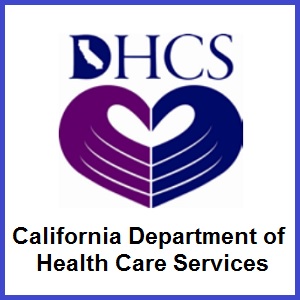
The California Department of Health Care Services (DHCS) will pay the private health insurance premiums, and associated member cost-sharing, when the individual has been determined eligible for full scope Medi-Cal. Under the Health Insurance Premium Payment (HIPP) program, DHCS will pay for the private health insurance plan when they determine it is cost-effective to do so. In other words, DHCS will pay for the health insurance when the cost of the health insurance plan, plus member cost-sharing for health care treatment, is lower than Medi-Cal fee-for-service alternative.
Health Insurance Premium Payment
The HIPP program is very specialized and narrow in scope. There are lots of forms to fill out on the part of the applicant. While DHCS does not give any hints as to the types of medical conditions covered by private health insurance that have a high probability to be approved for HIPP, they are most likely illnesses with expensive health care treatments. The operative statement is that paying for the private health insurance on the part of the Medi-Cal FFS beneficiary is cost-effective.
The HIPP program pays the medical insurance premiums, coinsurance, deductibles, and other cost-sharing obligations for the individual. The annual cost of the premiums and member cost-sharing is compared to the estimated cost of an equivalent set of Medi-Cal services. Outlined in in an ACWD Letter 09-02, DHCS uses a specific formula to determine the cost-effective nature of the private insurance over Medi-Cal FFS.
- Calculate cost-effectiveness by using the amount Medi-Cal would pay annually for the specific condition; deduct the individual’s and/or family’s SOC, and then divide by the annual insurance premium cost.
- If the result is 1.1 or more, then it is cost effective to pay the premiums for an individual and/or family.
In this test, Medi-Cal FFS would need to cost 10% more than the private health insurance before it would be considered cost-effective. Essentially, the HIPP program allows DHCS to pay the premiums for the private health insurance policy and lets the health insurance company shoulder the bulk of the claims associated with the health care treatment. While this might not be such a great deal for the private health plan, it allows the individual to keep their doctors and other providers as they go through their treatment.
It may also be possible to have the HIPP eligible individual have DHCS pay the health insurance premiums for their spouse and dependents. In this situation, the rates for the other family members cannot be easily separated from the overall family rate. This would be the case in an employer group plan where there is one rate for the employee, spouse and dependents. If the HIPP applicant had and individual and family plan, or group plan, where the rates were easily identifiable, then those premiums would not be covered.
There are lots of other conditions that narrow the pool of potential applicants for the HIPP program. You can’t be enrolled in Medicare, Tri-Care, or a Medi-Cal HMO Managed Care plan. The applicant must be eligible for full scope Medical under their program guidelines. An individual can become eligible for MAGI Medi-Cal from the loss of a job and resulting decrease in their household income. The person may have the option of paying for a COBRA plan or they may have purchased and individual and family plan. However, the premiums for those plans may be too great for the individual or family to bear given the costs of the person’s health care treatment.
The person must apply for HIPP before they cancel their private plan or it is terminated for nonpayment. HIPP will only pay premiums for the private health insurance beginning the month of HIPP approval. They will not retroactively pay the health insurance premiums. The Evidence of Coverage document for the health plan will also have to be submitted with the application to show that the medical condition is covered by the health plan. There also need to be a medical statement of diagnosis confirming the medical condition. The primary policy holder of the health plan doesn’t need to be the individual applying for HIPP. It could be a child or the person’s spouse.
Some of the terms and conditions of the Medi-Cal programs can change over time as new laws and regulations are past. Always check with the DHCS website for the most recent application and other documents for the HIPP program. In a situation where an individual has a private health insurance plan, is facing expensive medical treatment, and has become eligible for Medi-Cal, it cannot hurt to apply for the HIPP program.
Conditions for Terminating Employees for HIPP
1. Applicant must have full scope or fee-for-service Medi-Cal;
2. Must have a medical condition that requires a physician’s treatment;
3. Meet the cost-effectiveness analysis criteria;
4. Must have a current health insurance policy that covers your medical condition, COBRA or CAL-COBRA continuation policy; or a COBRA Conversion policy in effect or available at the time of application;
5. The health Insurance policy must cover your medical condition;
6. Apply online at https://www.dhcs.ca.gov/services/pages/tplrd_cau_cont.aspx A. Please upload all attachments in PDF format only;
7. Cannot be enrolled in a Medi-Cal managed care or prepaid health plan, County Organized Health System (COHS), Geographic Managed Care Program, County Medical Services Program (CMSP) and/or Medicare. DHCS 9061 (Rev 09/15)
Health Ins Premium Pay


